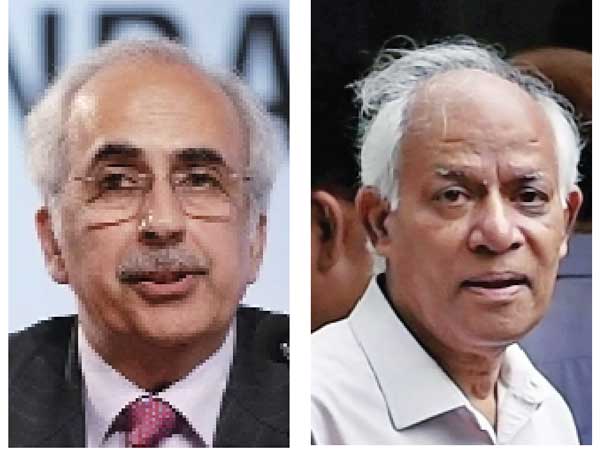
Propriety seems to have taken back seat with some of the top former bureaucrats like Ashok Chawla continuing in top positions as chairman of various entities — NSE, Teri and Yes Bank, in Chawla’s case — even though they face serious charges against them.
The CBI supplementary charge sheet in the Aircel-Maxis case has named Chawla as an accused along with two senior serving IAS officers –then joint secretary Kumar Sanjay Krishna and director Deepak Kumar Singh. While Krishna is currently posted as additional chief secretary of Assam, Singh is now a principal secretary in Bihar.
This has stoked debate on continuation of their services in top positions. Those keeping an eye on public affairs have suggested the government to forthwith remove them from their positions.
They have cited the instance of former coal secretary HC Gupta who had immediately resigned as member of the Competition Commission of India after he was summoned for questioning in the coal scam.
“Both serving and retired bureaucrats should follow Gupta and step down as a matter of propriety,” said a senior government official.
The legal experts want the government to come out with a set of rules to handle such instances or enforcing the unwritten rule in politics that forces an elected representative to resign pending enquiry. “There should be a moral compulsion on bureaucrats. You have similar rules when it comes to elected representatives. As soon as a charge sheet is filed against a politician there is pressure on him to take a moral call. It is done to ensure that the person holding a (high) position does not influence the enquiry. So, there should be either moral compulsion or a set of guidelines to handle such situations,” said Kapil Sankhla, a Supreme Court lawyer and managing partner of Sankhla & Associates.
In its fresh charge sheet filed last week, the CBI has named many former bureaucrats in the case along with high-profile accused P Chidambaram and his son Karti Chidambaram. Retired bureaucrats Ashok Chawla and Ashok Jha, among others, figure as accused in the case. At the time of FDI clearance to Aircel, the by now defunct Foreign Investment Promotion Board (FIPB), Ashok Chawla was additional secretary in the department of economic affairs (DEA) while Ashok Jha was secretary.
Apart from being chairman of NSE, Chawla is also the top boss of leading think tank Teri. He earlier served as chairman of fair market regulator Competition Commission of India (CCI). Ashok Jha was chairman of Hyundai India and currently sits as independent director on the board of various companies.
The other accused in the case are Kumar Sanjay Krishna, then joint secretary, Deepak Kumar Singh, then director and Ram Sharan, then under secretary.
With the government pushing for better corporate governance, there are chances that it will not allow bureaucrats on the board of public sector companies or regulators in case charges are framed against them. It may also require listed private firms to remove board members whose integrity has been questioned.
Anshul Prakash, partner, Khaitan & Co, said that one has to first of all see whether there is a complete embargo on engagement of people against whom charges have been filed.
“Usually, from employment or engagement perspective in an agreement there is a clause that unless charges are proven the person can continue in that position. So, there are two aspects to it. First is that if charges have been proven or whether the charge sheet filed would be ground enough for the individual concerned to step down. That is a call a company has to take,” he said.
Prakash said that from the standpoint of propriety, it may not be right for a person to continue as someone who is a part of the decision-making process.
“The way things are currently going on, people have been forced to step down from top positions pending investigation or enquiry against them. The government has emphasised on cleaning up the system and has cracked down on shell companies by imposing restrictions on engaging tainted individuals as independent directors. The government should further come up with clarifications as to how such individuals have to be dealt with,” he added.




